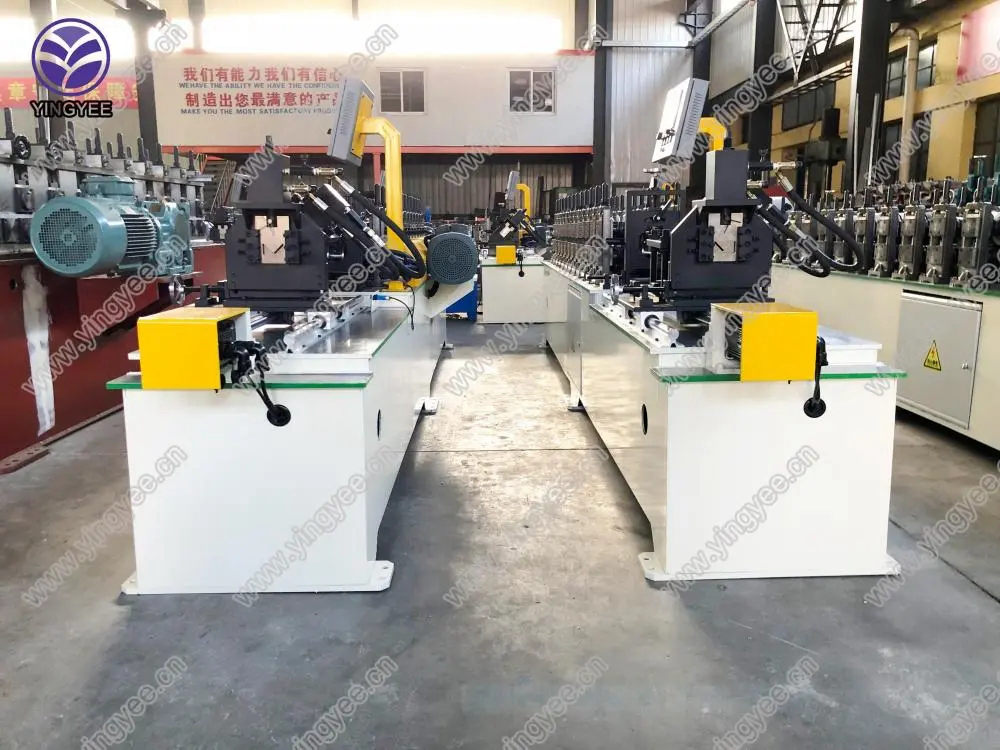
The Evolution and Importance of Roof Tile Rolling Machines
Roofing is a crucial aspect of construction that not only protects buildings but also enhances their aesthetic appeal. As the demand for various roofing materials has increased, so has the need for efficient production processes. Among the essential tools in this industry is the roof tile rolling machine, a device that has revolutionized how roofing tiles are manufactured.
Understanding Roof Tile Rolling Machines
A roof tile rolling machine is specialized equipment used to produce metal roof tiles. This machine transforms flat sheets of metal into beautifully designed tiles through a series of rolling processes. The machine typically consists of a series of rollers, each performing a specific function. The primary goal is to bend and shape the metal into desired profiles, ensuring durability and a perfect fit for roofing applications.
Roof tile rolling machines can produce a variety of tile profiles, including traditional clay-like designs and modern, sleek metal styles. Different materials, such as steel, aluminum, and copper, can be used, depending on the desired aesthetic and functional properties. The versatility of these machines allows manufacturers to cater to diverse market demands and consumer preferences.
Advantages of Using Roof Tile Rolling Machines
1. Efficiency and Speed Modern roof tile rolling machines are designed for high efficiency. They can produce a large number of tiles in a relatively short period, making them ideal for large-scale production needs. This efficiency leads to reduced labor costs and shorter project timelines for builders.
2. Customization Many machines offer the ability to customize dimensions and designs easily. This adaptability is essential in catering to specific architectural styles and regional preferences. Builders and homeowners can achieve the exact look they desire, whether it's a traditional aesthetic or a more contemporary appearance.

3. Quality and Durability Roof tile rolling machines can produce high-quality tiles that withstand various environmental conditions. The materials used are often treated to be rust-resistant and can handle extreme weather, ensuring longevity. This reliability is vital for homeowners who invest in a roof that is meant to last for decades.
4. Material Efficiency The rolling process minimizes waste compared to conventional methods of tile production. The precise nature of the machinery ensures that almost every part of the raw material is utilized, reducing costs and minimizing environmental impact.
Technological Advancements
In recent years, technological advancements have further improved the functionality of roof tile rolling machines. Automation and control systems have made it easier to operate these machines, allowing for more precise manufacturing processes. Many modern machines come equipped with computer numerical control (CNC) technology, enabling the production of intricate designs that were previously challenging to achieve.
Additionally, innovations in materials science have led to the development of new alloys and coatings that enhance the performance of roofing tiles. For instance, manufacturers can now create lightweight yet durable tiles that offer better thermal insulation and energy efficiency.
Conclusion
The roof tile rolling machine is more than just a piece of equipment; it represents a significant advancement in the construction industry. By enhancing efficiency, quality, and customization in tile production, these machines have become indispensable tools for manufacturers and builders alike. As technology continues to evolve, we can anticipate even greater innovations in the production of roof tiles, contributing to sustainable building practices and meeting the ever-growing demands for diverse roofing solutions. The future of roofing is undoubtedly bright, with roof tile rolling machines at the forefront of this transformation.